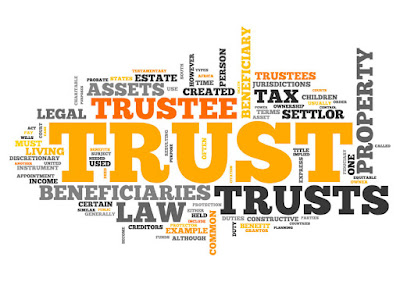One
begins to wonder if the Court in the case of Salomon v Salomon [1897] A.C.22
ever envisaged that a principle derived from the case law in 1897 was
continue to be litigated with such furore in 2014. The principle in Salomon sought to keep companies as separate
legal entities which personalities that are distinct from their owners and
controllers. The advantage here being that companies would not be liable for
the debts of their shareholders and management and, in the reverse,
shareholders and management would not be liable for the debts of the company.
The
advantages of the separate entity principle is worthy of an article in itself.
The long and the short of it being that by limiting the liability of
shareholders company law is able to encourage entrepreneurship amongst those
otherwise wary of the dangers associated with a failed venture; thus those
without deep pockets but with deep ideas and skills have been able to trade and
ensure their risk is limited.
However,
a number of cases have worked to try and limit the principle in Salomon and thus allow shareholders and
the management of the company to be liable for the debts and liabilities of the
company; this principle has become known as “lifting the corporate veil”,
amongst other names. However, in the interests of commercial certainty and
preserving the limited liability and separate entity principle, Lord Sumption
of the Supreme Court, in the case of Prest
v Petrodel [2013] UKSC 34 has made it clear that the veil should not be
lifted save for in exceptional circumstances. Thus, the Supreme Court has
severely limited the case law relating to the lifting of the corporate veil.
The
Court of Appeal has again spoken in the case of David Thompson v The Renwick Group plc [2014] EWCA Civ 635 by
overturning a first instance decision which had held that a company was liable
to its employee for the injuries and harm that came across as a result of the
exposure to asbestos; the Court of Appeal was asked to consider whether the
Defendant company, who owned two now defunct subsidiaries with whom the
Claimant was employed, owed a duty of care to the Claimant. In holding that it
did not, the Court of Appeal considered whether a parent company can have
assumed a duty of care as to the health and safety of its employee by virtue of
the fact that it had appointed one of its directors to concern themselves with
the health and safety of the employees of the subsidiary companies. The Court
of Appeal, in finding an answer in the negative, held that the director’s duty
was limited to a duty to the company ad not to its employees and, thus, the
parent company did not owe a duty f care to the employees of the subsidiary. In
citing the case of Chandler v Cape plc [2012]
EWCA 525, where, on the particular facts, the company was found to be liable,
the Court of Appeal held that the factual differences were such as to not find
the company liable in this instance.
This
case allows multinationals and businessmen to breathe a sigh of relief
following the case of Chandler where
the concern was that the decision would expose (with no intended pun)
multinational companies to litigation risks associated with asbestos cases.
The writer is a lawyer based in London, with a keen interest in Company, Employment and Immigration law. Previously, he has completed two Masters in Law at the University of Sussex and University College London. He is currently pursuing his third postgraduate legal qualification, undergoing training at BPP Law School in London on the Bar Professional Training Course and can be reached at: jay@londonlawtutor.com
Law Tutors Online, UK Law Tutor, UK Law Notes, Manchester Law Tutor, Birmingham Law Tutor, Nottingham Law Tutor, Oxford Law Tutor, Cambridge Law Tutor, New York Law Tutor, Sydney Law Tutor, Singapore Law Tutor, Hong Kong Law Tutor, London Tutors, Top Tutors Online and London Law Tutor are trading names of London Law Tutor Ltd. which is a company registered in England and Wales. Company Registration Number: 08253481. VAT Registration Number: 160291824 Registered Data Controller: ZA236376 Registered office: Berkeley Square House, Berkeley Square, London, UK W1J 6BD. All Rights Reserved. Copyright © 2012-2024.


